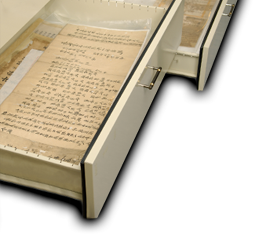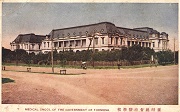| 2012-08-15 |
|
The Emperor broadcasted himself at noon on the 15th, claiming that the acceptance of Potsdam Declaration was for the sake of world peace and the future development of the Japanese nation; all the subjects should obey his will. Alas, an empire established by military power over 50 years was also lost because of it. Diary of Lin Hsien-t'ang, August 15, 1945 On 15 August 1945, the Japanese Emperor Hirohito announced the unconditional surrender of Japan on radio broadcast. The World War II had ended, and the fate of Taiwan moved toward a different direction. How did the Taiwanese intellectuals perceive such dramatic change? How were Taiwanese people's life affected by it? The diaries in 1945 and 1946 kept by Lin Hsien-t'ang, the Taiwanese cultural and political leader, provide valuable primary sources on this transition period. 730 entries and more than 1500 annotations are now available on the Taiwan Diary Knowledge Bank. Through these personal records, we can see how the Lin family lived their life suffering from the air raids and material shortages and how their house compound was "borrowed." After Japan's surrender, so many Japanese, Taiwanese and Chinese contacted Lin Hsien-t'ang regarding issues such as the future relations between Taiwan and Japan and maintenance of social order. Social conditions and personal feeling revealed by diaries are often disregarded in the official archives, but they are undoubtedly crucial materials to understand and interpret the past. The Taiwan Diary Knowledge Bank features more diary entries of other Taiwanese during this period. It can be accessed at http://taco.ith.sinica.edu.tw/tdk.  |




